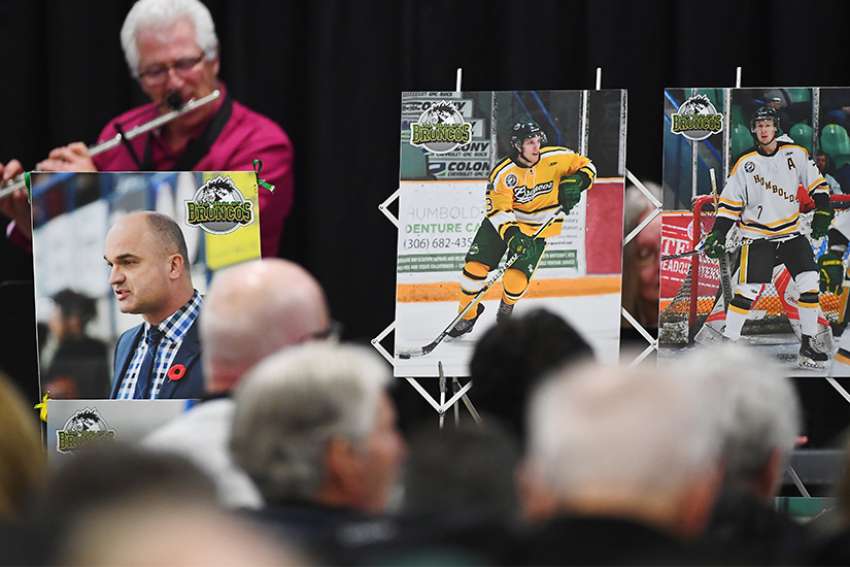Chaplains in Saskatoon are experiencing one of those situations for which no amount of training can suffice. When tragedy struck on April 6, claiming the lives of 16 people on a bus carrying the Humboldt Broncos junior hockey team, the chaplains from several denominations were thrust into a nightmare come true.
“We don’t really have anything to compare this to,” said Jackie Saretsky, co-ordinator of hospital chaplaincy for the Diocese of Saskatoon. “We really don’t have a baseline here.”
It’s been a learn-as-you-go process for chaplains who have been providing emotional and spiritual support to the families of the 16 who perished and 13 others severely injured when the team’s bus collided with a semi-trailer on a northern Saskatchewan highway. Chaplains are on call 24 hours a day and there is a presence in Saskatoon’s Royal University Hospital at all times for the families affected by the crash that has torn at the hearts of the community, the province and the nation.
“There’s a lot of emotion here,” said Saretsky. “Just walking into the hospital, you can feel the emotion right away. So you’re constantly in that emotional space.”
With nothing to compare this to, Saretsky said the chaplains have been relying on each other to formulate their response. They are in constant contact, through texting and social media, and administering care to each other to keep it all together.
“It is really a team effort. That’s the beauty of us denominations being so close and working together,” she said.
The chaplains have been doing all they can, from operating a coffee station where families can go for a break to setting up a memorial in the hospital’s chapel, to, of course, being there for the families.
Cutbacks have seen permanent spiritual staff removed from the hospital, but a chaplaincy office remains and chaplains are using it as home base during the crisis that will play out over the long term as the critically injured will take months to recover.
“We denominational chaplains are very much present but oftentimes we can’t make that first step, we need families to reach out to us before we can get that connection going,” said Saretsky.
Victims’ families have been grateful there is someone to talk to in time of need.
“Even those that don’t identify with any one religion have been so good with receiving support,” said Saretsky. “They’ve just been soaking it up and have been very open to spiritual support and everything chaplains have been able to offer.”
Hospital staff also find themselves dealing with an unprecedented situation and in need of support, she said, particularly those dealing closest with the young players, who range in age from 16 to 21.
“People want to talk. They want to share their emotional part in this,” she said. “The emotion has been in ICU (Intensive Care Unit) and just hoping so much for all the victims in there and just feeling that intensity.”
And the challenges just keep coming. The first funeral, for team broadcaster Tyler Bieber, was held April 12, and from there it was one funeral after another. This hit home for Saretsky, who is originally from Humboldt, 110 kilometres east of Saskatoon.
“I know some of the families and I know because it was such a close-knit community that many of these people are going to be attending a lot of these funerals and it’s going to be one day after another after another.”
As for the chaplains themselves, Saretsky said they are holding up well. But they are also caught up in the mourning.
“Standing there amidst this heaviness, this overwhelming sense of helplessness, you can only do so much.”
(Conlon is a writer in Regina.)


